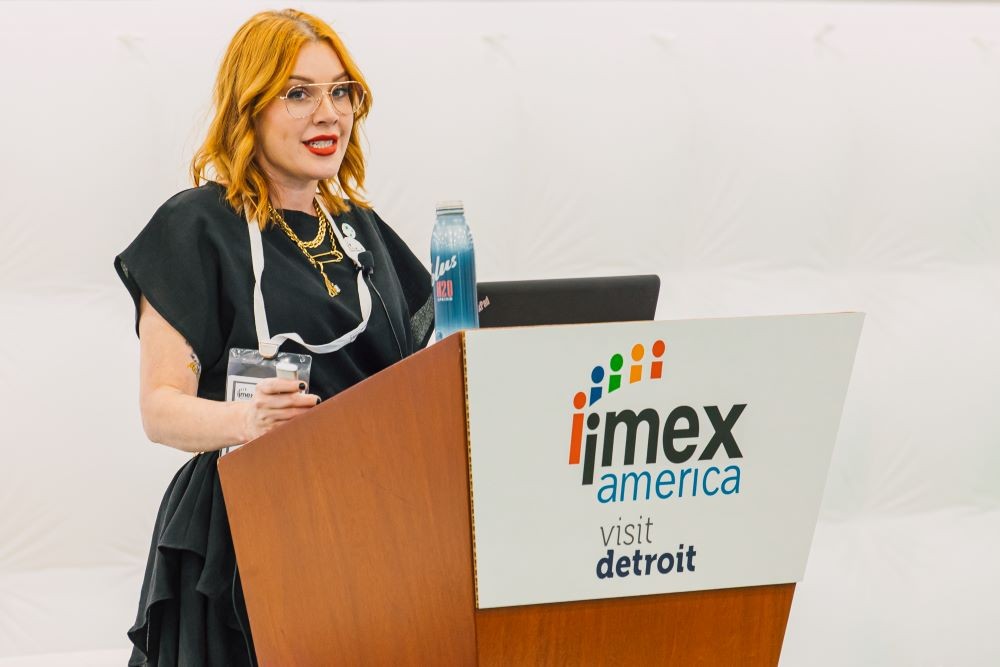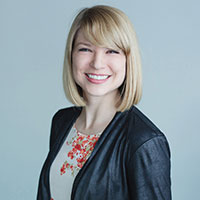Many event professionals found themselves in the position of rethinking how they design events after 2020 and the onset of the tumultuous COVID-19 pandemic. Megan Henshall, global events strategic solutions lead at Google, was in the midst of doing just that with the newly formed Experience Institute at Google, collecting data around why inclusion and belonging matters and why it's good for business.
Simultaneously, her personal life changed when she received the news that her son Otis had been diagnosed with autism.
“So then, we were on a personal journey to understand how to advocate for him and how to create belonging for him in public spaces and...try to hold space for him,” she said. “And it just felt like a neon sign from the universe to find resources for event professionals at Google, but also for the industry to do this better to be more neuroinclusive because it was a gap.”
It was at this moment that the trajectory of Henshall’s career motivations changed and the idea for The Neu Project was born. The Neu Project aims to promote neuroinclusivity by designing experiences that support and empower all brain types rather than just neurotypical.
“It was really important to me to source and find neurodivergent people to inform and influence this work,” Henshall explained. “That sprung from an idea I had that if I want to be the best mom possible to Otis, I should probably be talking to autistic adults to see what would have been valuable or useful to them, as children are in their developmental years, right?
“And the same applies for my professional life. If I want to understand how to make an inclusive, welcoming event that cultivates belonging, I should probably be talking to the people that I want to invite and welcome into those experiences,” she added.
[Related: Meetings Trendsetters in 2022]
From Sales to Event Design
Like many event professionals, Henshall didn’t start her career designing meetings and events.
“I started my corporate career in enterprise sales and I sucked at it. I was terrible at sales, really good at building relationships, really terrible asking for commitment,” she said.
After the dawning realization that sales wasn’t her calling, Henshall jumped at the chance to get involved in content development.
“I raised my hand to do content development and regional sales meetings and executive briefings with customer groups,” she said. “That's how I got into the logistics of event planning. And I loved the work. I love designing experiences for people and bringing them together to solve big problems.”
After doing project-based work for a number of years, Henshall moved into a more strategic role with Google, which brings her to where she is today as the global events strategic solutions lead.
Now, as one of the leading voices of The Neu Project, her outlook on experience design has fundamentally shifted, setting her on a new passion path in the events industry.
“Since the work has been in flight, and we've been socializing it internally, the leadership, excitement in sponsorship and endorsement has been incredible,” she said. “And it just goes to show that this is maybe the future of work, doing projects like this that mean something to people and that speak to their personal values.
“It’s maybe the way to retain talent,” she continued. “I've had so many people raise their hands to partner on this project and to get involved. People want purpose, and they want to do work that feels good and is creating change for good.”
[Related: The Neu Project Champions More-Neuroinclusive Events]
The Way Forward
The launch of The Neu Project in many ways displayed to Henshall not only the willingness of event professionals to meaningfully work on inclusion advocacy, but also how making space for inclusion initiatives could be the key to attracting and retaining new talent to an industry that is struggling with workforce development and staffing.
“Event professionals are exhausted or overwhelmed. We're hemorrhaging talent in our industry right now,” Henshall said. “And I saw people light up, thinking about how they could use what they do to hold space for other people. In a way, I'm seeing it reignite the passion for this discipline for so many people.”
Roles dedicated to inclusion and making meaningful change—ones that over index on the audience outcomes—are the ones that Henshall sees as key to moving the industry forward and engaging the next generation of meeting professionals.
“I think we have to start anchoring this work to driving change—being champions for good in the world, using our discipline to promote cultural shifts that are going to put us all in a better place. We can do that,” she said. “I think this industry has so much opportunity, and that's the stuff that's going to attract the next generation.”
Read this next: How to Plan Accessible Meetings and Events: A Comprehensive Guide for Event Professionals







